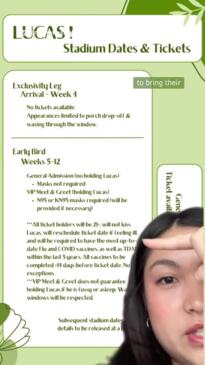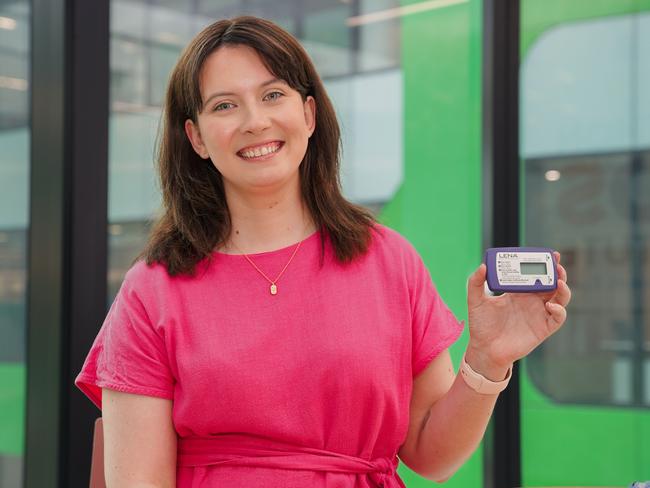Telethon Kids Institute ‘technoference’ study reveals devices rob kids of 1100 words a day
Researchers in Adelaide have found screentime is measurably stunting the development of critical skills in children. Here’s what you need to know.

Lifestyle
Don't miss out on the headlines from Lifestyle. Followed categories will be added to My News.
Screen time is robbing young children of vocabulary with the average three-year-old missing out on more than 1100 adult words a day as both children and parents stare at screens, Adelaide research suggests.
Telethon Kids Institute researchers used Fitbit-like devices to measure how families’ screen use affects communication between parents and youngsters – a phenomenon dubbed “technoference” – and found screen time is replacing vital language opportunities.
Results published in the Journal of the American Medical Association today revealed that for every minute of screen time children aged 1–3 years are exposed to, they hear fewer adult words, make fewer vocalisations, and engage in fewer conversations.

The research led by Telethon Kids Institute senior research officer Dr Mary Brushe, saw researchers track 220 Australian families over almost three years to measure the relationship between family screen use and children’s language environment.
The study – part of Dr Brushe’s PhD with the University of Adelaide – measured the amount of electronic noise and parent-child talk surrounding children aged between 12 and 36 months.
The device used LENA speech recognition technology to show the number of adult
words, child vocalisations and parent-child interactions that occurred during the recorded period.
“We wanted to understand how much screen time children were exposed to during the early years and whether that interfered with the amount of language these kids heard and spoke in their home,” Dr Brushe said.
“We know the amount of talk and interaction children experience is critical for their early language development – this study highlights that screen time may be getting in the way.
“Our findings support the notion of ‘technoference’ as a real issue for Australian families, whereby young children’s exposure to screen time is interfering with opportunities to talk and interact in their home environment.”
Dr Brushe said the findings suggest children whose families follow current World Health Organisation screen time guidelines – one hour a day for children aged 36 months – could be missing out on up to 397 adult words, 294 vocalisations, and 68 conversational turns every day.
The study did not necessarily catch silent screen use by parents such as texting or scrolling social media on a mobile phone.
Matthew Tilbrook said for three-year-old daughter Harper, screen time was something that parents often had to resort to.
“I find screen time affects her mood more than her vocabulary,” he said.
“We try to only use screen time as a downtime activity but sometimes as parents you just need to use what you can to get by.”
He did, however, say he was wary of Harper becoming “addicted” to screen time.
“It makes her grumpy once we try and turn off the TV,” he said.
“We try and limit it to one to two hours a day if we are home all day and balance it with outdoor time – childcare is four days a week and there is no screen time there.”
More Coverage
Originally published as Telethon Kids Institute ‘technoference’ study reveals devices rob kids of 1100 words a day





